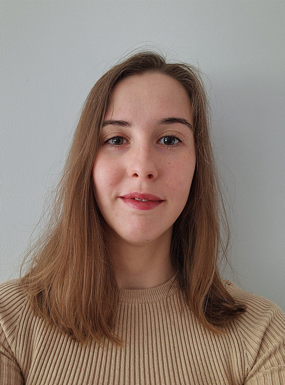Monitoring and mapping the biodiversity of bacteria, fungi and microarthropods in soils using multi-source remote sensing and environmental met abarcoding profiles
Mélody Rousseau is a PhD student in the department Department of Natural Resources. (Co)Promotors are prof.dr. A.K. Skidmore, dr. A. Siegenthaler from the faculty of Geo-Information Science and Earth Observation from the university of Twente and dr. G.A. de Groot from the Wageningen University & Research.
 Microorganisms and microarthropods are key drivers of essential forest ecosystem processes, such as nutrient cycling and organic matter decomposition. However, these ecosystems are increasingly threatened by anthropogenic pressures, natural disturbances, and climate change, which can disrupt soil biodiversity and compromise forest health and resilience. To inform forest managers and policymakers, a scalable framework for monitoring soil biodiversity across spatial and temporal scales is needed. My thesis (1) evaluates the impacts of severe soil acidification and pest outbreaks on soil biodiversity, (2) investigates the spatial variation and environmental drivers of microbial and microarthropod communities at the forest stand level, and (3) explores an integrative approach that combines in situ environmental DNA (eDNA) metabarcoding with multi-source remote sensing data for landscape-scale soil biodiversity mapping in European temperate forests. My findings highlight soil acidification as a persistent threat to soil biodiversity despite reductions in nitrogen emissions and demonstrate the feasibility and potential of this integrative approach for monitoring soil biodiversity in European temperate forests.
Microorganisms and microarthropods are key drivers of essential forest ecosystem processes, such as nutrient cycling and organic matter decomposition. However, these ecosystems are increasingly threatened by anthropogenic pressures, natural disturbances, and climate change, which can disrupt soil biodiversity and compromise forest health and resilience. To inform forest managers and policymakers, a scalable framework for monitoring soil biodiversity across spatial and temporal scales is needed. My thesis (1) evaluates the impacts of severe soil acidification and pest outbreaks on soil biodiversity, (2) investigates the spatial variation and environmental drivers of microbial and microarthropod communities at the forest stand level, and (3) explores an integrative approach that combines in situ environmental DNA (eDNA) metabarcoding with multi-source remote sensing data for landscape-scale soil biodiversity mapping in European temperate forests. My findings highlight soil acidification as a persistent threat to soil biodiversity despite reductions in nitrogen emissions and demonstrate the feasibility and potential of this integrative approach for monitoring soil biodiversity in European temperate forests.





